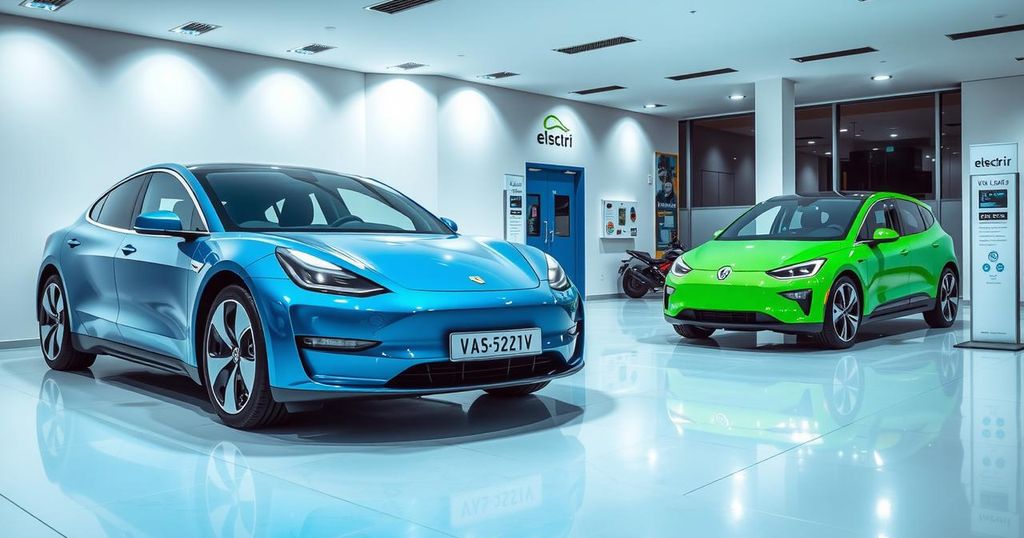Cars
ALTERNATIVE FUR DEUTSCHLAND, ALTERNATIVE FÜR DEUTSCHLAND, ASIA, AUTOMOTIVE INDUSTRY, BYD, CHINA, DEPARTMENT FOR, DOGE, DONALD TRUMP, EUROPE, FOR GOVERNMENT EFFICIENCY, FOREIGN INVESTMENT, GERMANY, GOVERNMENT EFFICIENCY, INVESTMENT, INVESTMENTS, KEI, MEXICO, MUSK, NORTH AMERICA, SHENZHEN, TARIFFS, TESLA, TRUMP, UK, US, WANG CHUANFU, WARREN BUFFETT
Stella Nguyen
0 Comments
BYD Surpasses Tesla in Annual Revenue, Reinforcing Its Market Position
BYD has surpassed Tesla in 2024 annual revenue, reporting 777 billion yuan, a 29% increase. While Tesla sold slightly more EVs, BYD’s total vehicle sales, including hybrids, reached 4.3 million. New models and fast charging technology enhance BYD’s competitive edge amid challenges faced by Tesla due to Musk’s political ties and tariffs on Chinese automakers.
In a significant achievement, the Chinese electric vehicle manufacturer BYD has outperformed Tesla in terms of annual revenue for 2024. BYD reported a revenue increase of 29%, amounting to 777 billion yuan (approximately $107 billion), surpassing Tesla’s reported figure of $97.7 billion. This growth can be attributed to robust sales of its hybrid vehicles and the introduction of competitively priced cars such as the new Qin L model, which is positioned against Tesla’s Model 3 in the market.
Despite Tesla selling slightly more electric vehicles than BYD in 2024, with figures at 1.79 million versus BYD’s 1.76 million, the comprehensive sales including hybrid vehicles reveal a different story. BYD has achieved a record total of 4.3 million vehicles sold globally. The competitive pricing strategy, highlighted by the Qin L’s starting price of 119,800 yuan against the Model 3’s 235,500 yuan, is key in a market where Chinese consumers are becoming more budget-conscious due to economic pressures.
In addition to vehicle sales, BYD announced advancements in battery technology that enable faster charging times of approximately five minutes, which is significantly quicker than the 15 minutes required for a Tesla using its supercharger. Furthermore, BYD’s innovative “God’s Eye” advanced driver-assistance system is expected to be incorporated into all models at no additional cost.
Shares in BYD have risen over 50% this year, with prominent US investor Warren Buffett backing the firm. Meanwhile, Tesla faces mounting challenges amidst political controversies linked to Elon Musk and his connections to former President Trump. This backdrop is further complicated by tariffs imposed on Chinese carmakers in Western markets such as the US and the EU.
In summary, BYD’s remarkable growth in 2024, fueled by strategic pricing and innovations in technology, has positioned it favorably against Tesla. The contrasting sales figures of electric and hybrid vehicles emphasize a notable shift in the automotive landscape. Additionally, ongoing challenges for Tesla, exacerbated by political factors and tariff barriers, create a dynamic and competitive environment for electric vehicle manufacturers. BYD’s achievements not only highlight its market strength but also suggest a shifting trend in consumer preferences within the electric vehicle sector.
Original Source: www.bbc.com




Post Comment